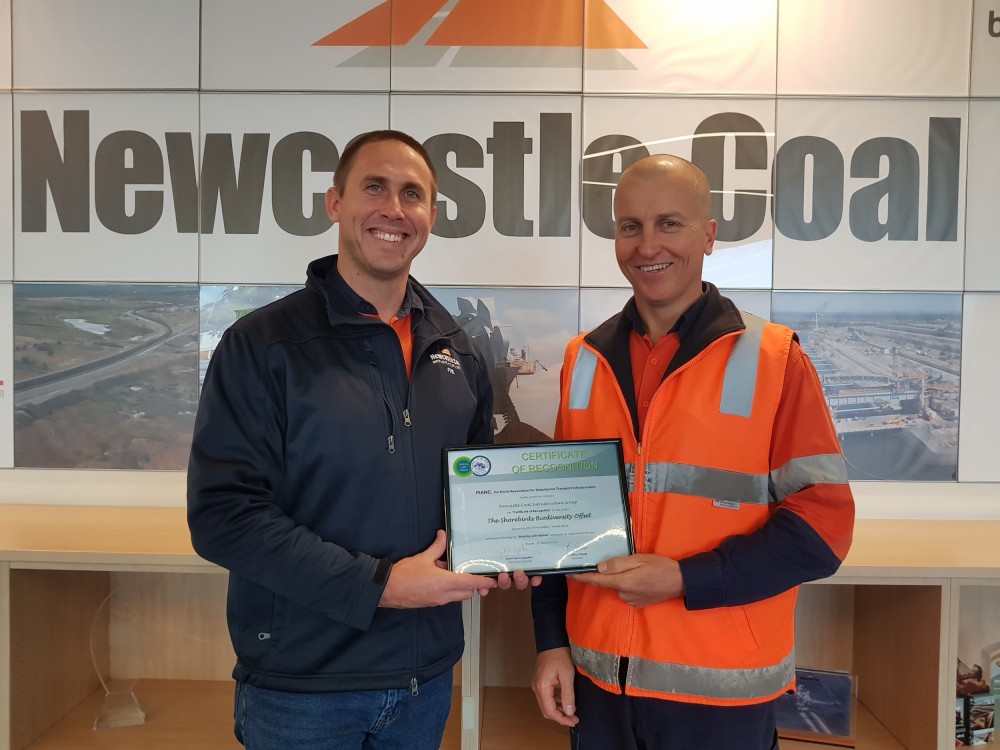Newcastle Coal Infrastructure Group (NCIG) has been named as one of a select number of recipients from around the world in the 2018 PIANC Working with Nature Awards for their work in restoring wetland habitat on Ash Island.
PIANC – The World Association for Waterborne Transport Infrastructure is an organisation of professionals from around the world who have joined forces to provide expert advice on cost-effective, reliable and sustainable infrastructures relating to waterborne transport. Established in 1885, PIANC continues to be the leading partner for government and private sector in the design, development and maintenance of ports, waterways and coastal areas.
The PIANC Working with Nature Award is announced every four years and aims to acknowledge initiatives which promote a proactive, integrated approach to sustainable infrastructure projects.
NCIG was the recipient of a Certificate of Recognition, which is the first to be received by an Australian project since the establishment of the awards in 2014.
NCIG has been working with National Parks and Wildlife Services, the University of New South Wales, the Hunter Bird Observers Club and other environmental groups and government departments for over 18 months to re-establish the endangered coastal salt marsh ecological community.
The tidal wetlands around the Port of Newcastle are home to a number of threatened species and communities. The coastal salt marsh vegetation community and numerous species of migratory shorebirds, such as the critically endangered Eastern Curlew and Curlew Sandpiper, are increasingly losing habitat along the Australasian-East Asian Flyway.
NCIG created habitat for migratory shorebirds in an area close to the terminal site, specifically Ash Island in the Hunter Wetlands National Park. The construction of habitat on Ash Island included restoration of 24 hectares of migratory shorebird habitat, including removal of 17 hectares of juvenile mangroves, installation of an automated flood gate to manage tidal levels and manage re-establishment of mangroves in the habitat, installation of mangrove seed screens to prevent mangrove seeds from floating into the habitat system and installation of bird diverter devices on local electricity infrastructure to make power lines more visible to birds flying in and out of the habitat.
NCIG’s CEO, Aaron Johansen said the nomination is testament to NCIG’s commitment to the environment and the local Hunter Estuary wetlands.
“The migratory shorebird habitat restoration project is unique in its type and scale and unlike any other conducted in Australia,” Aaron said.
“NCIG has been very committed to delivering sustainable environmental outcomes through this project and are very excited to have been recognised for this in an international forum.
“It’s an illustration that the process adopted through integrating stakeholder engagement, cutting edge research and sound environmental practices can achieve tangible outcomes which are considered world’s best practice. The great beneficiary of this project however is local wetland communities and the vulnerable and endangered migratory shorebird species which rely on them.”
IMAGE | NCIG’s Environmental Advisor, Philip Reid and HSEC Manager, Nathan Juchau.






